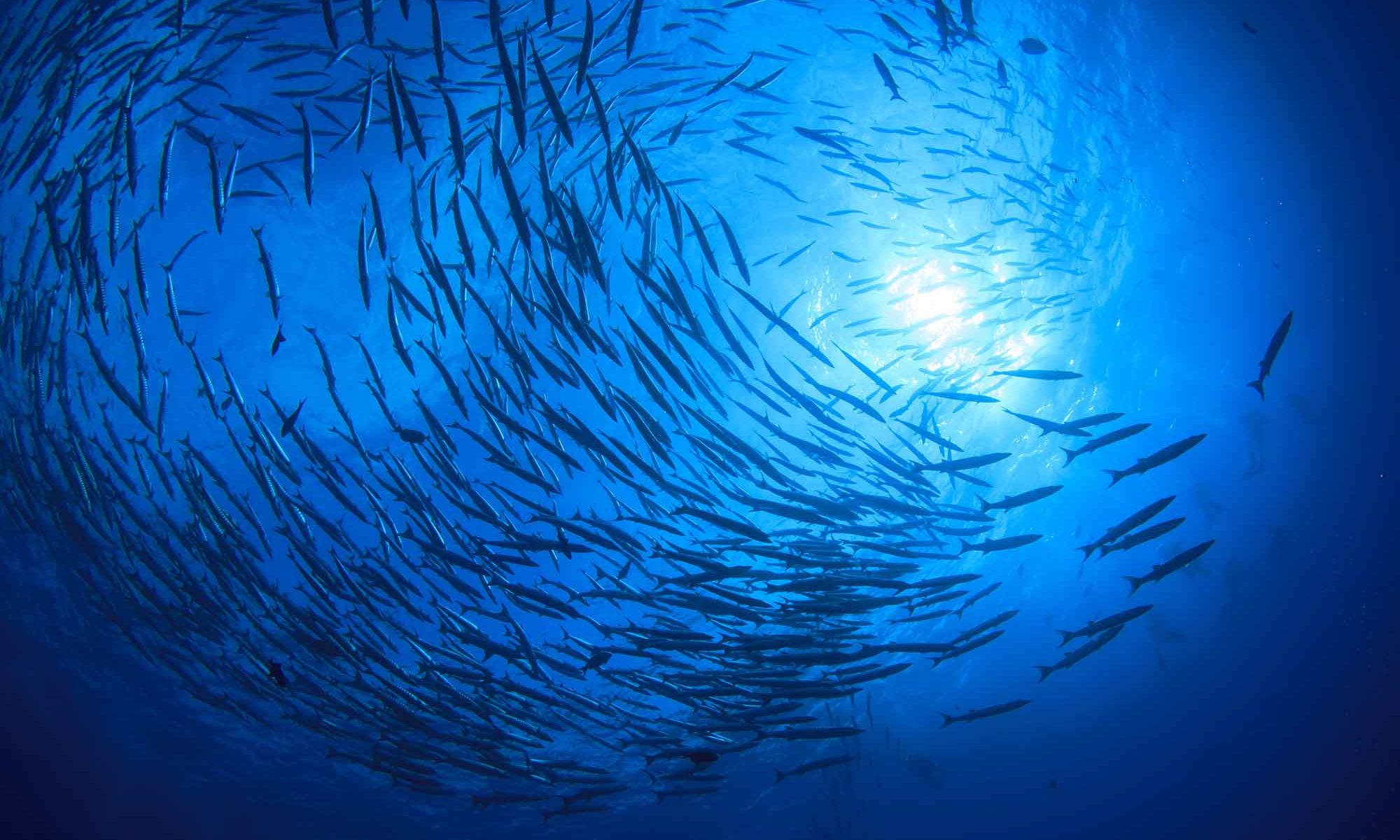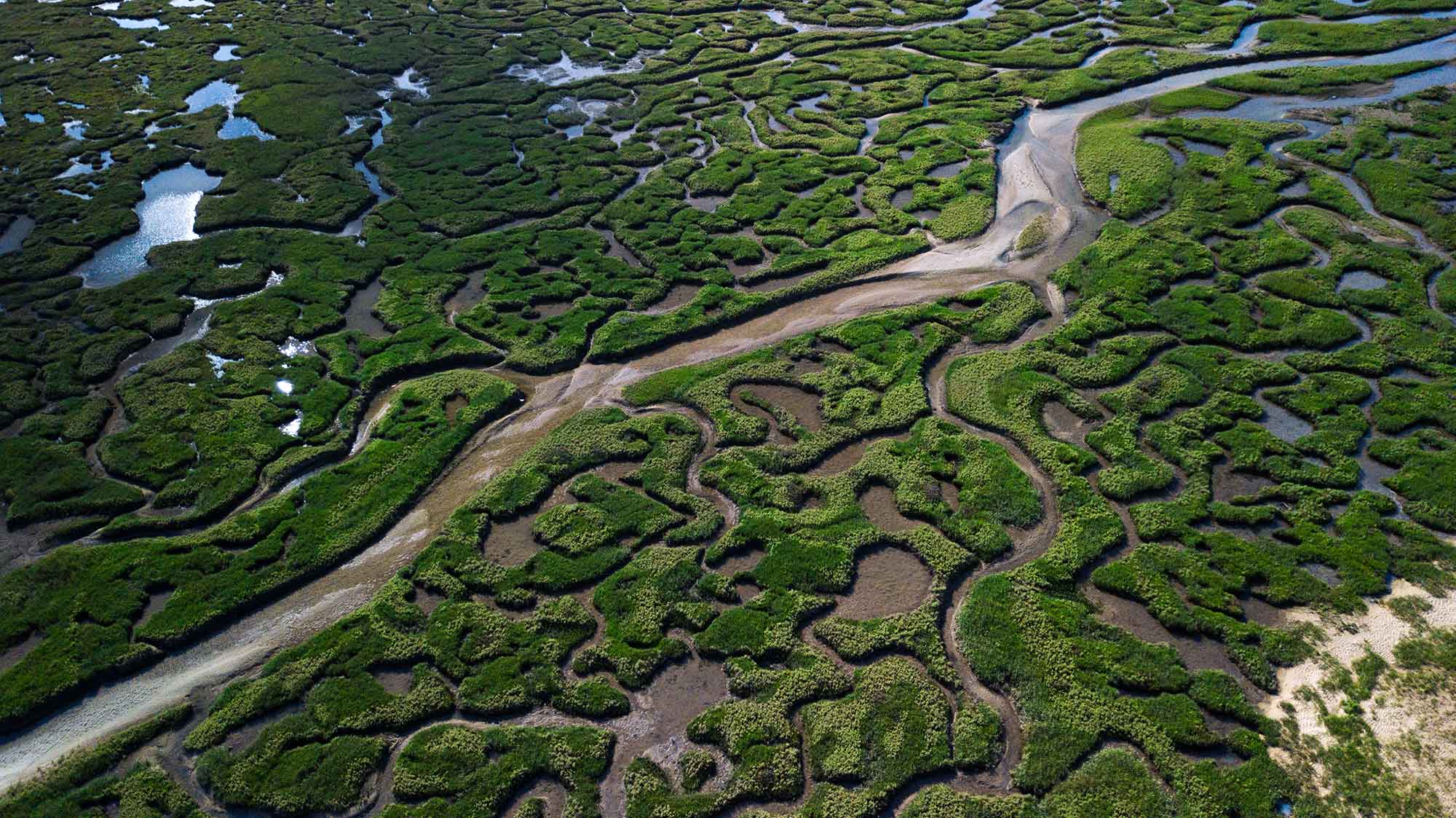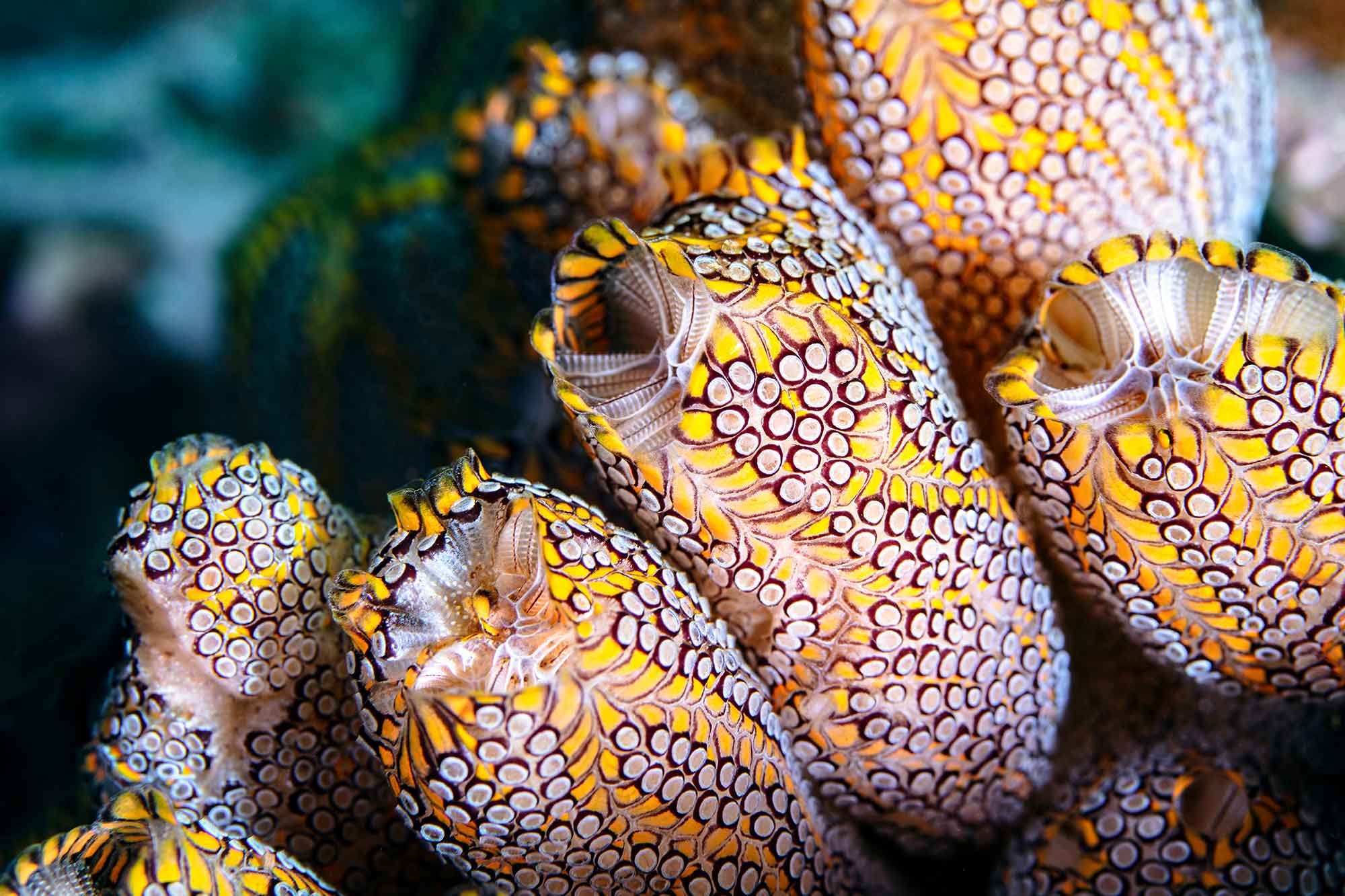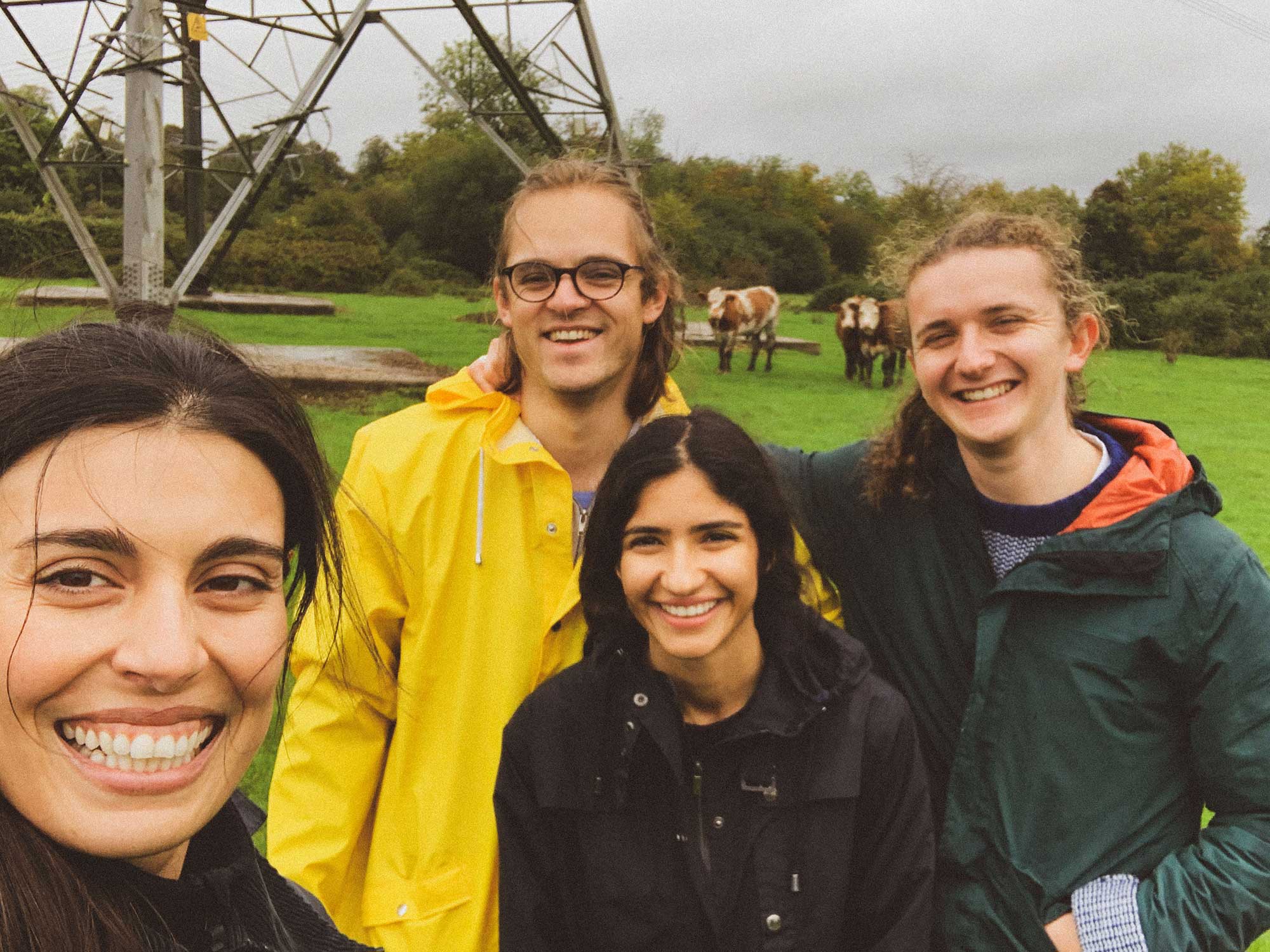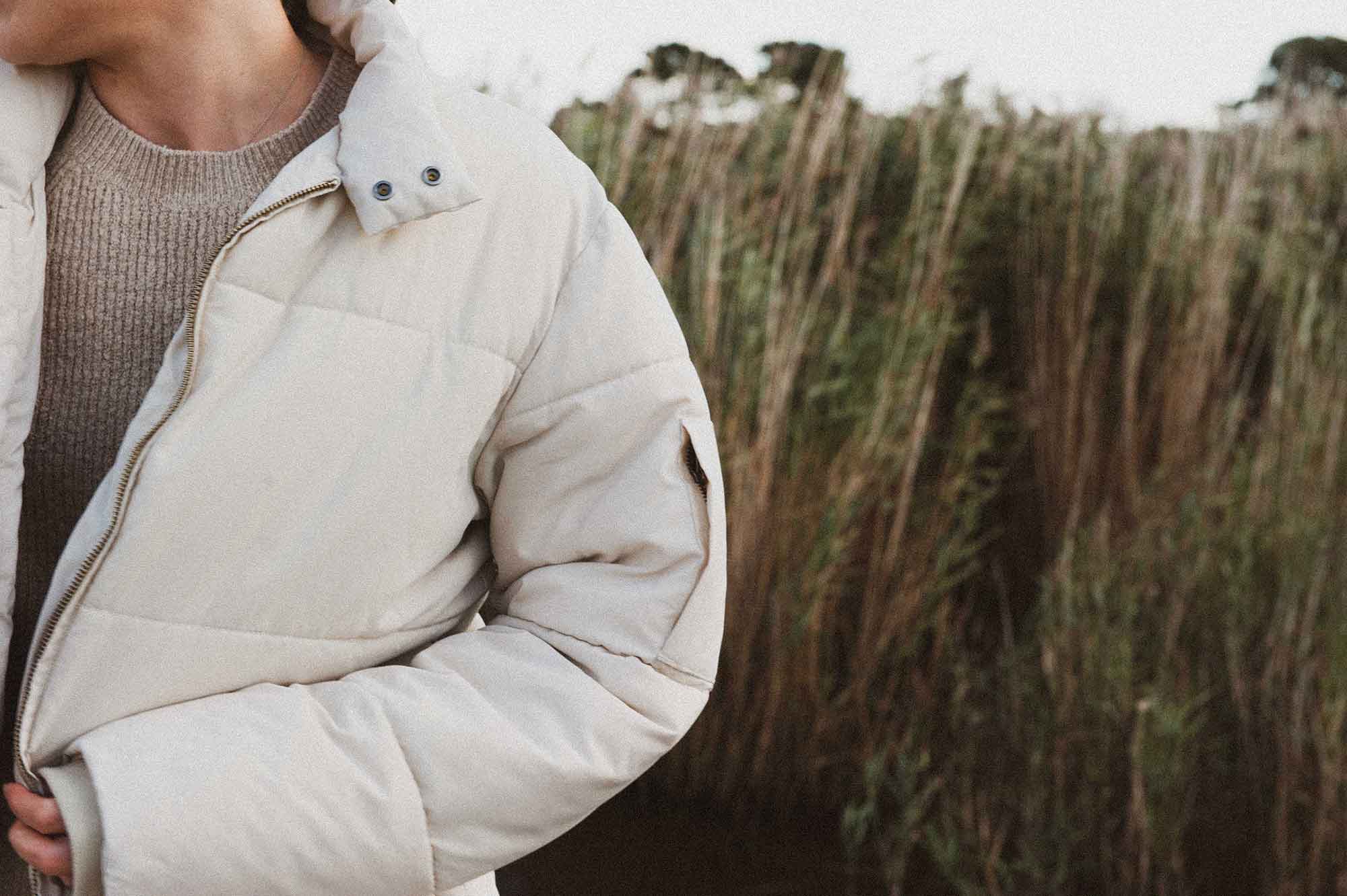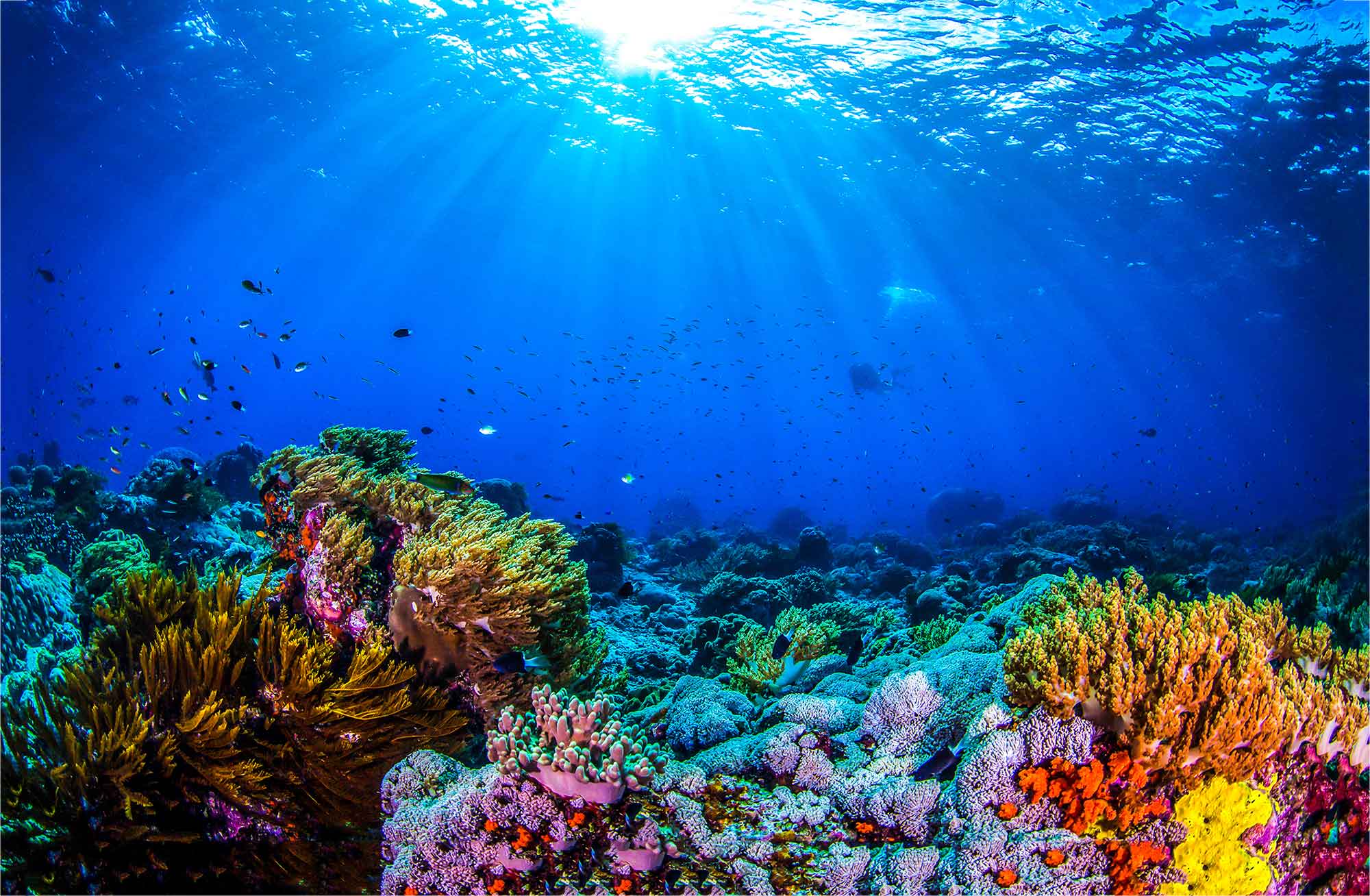For thousands of years, algae, shellfish and fish have been caught in the ocean. In recent times, there is an increase in offshore oil and gas rigs. But hardly anyone knows the full extent of living organisms that live deep underwater, from bacteria and corals to molluscs and even unknown life forms.
“I believe the ocean can provide answers to many of the societal challenges we face today, such as health problems, feeding of a growing population and climate change,” says Ana Brazão, project manager of Blue Bio Value at the Oceano Azul Foundation in Portugal. “They all have an impact on the ocean. At the same time, we are looking for new ways to feed the Earth’s population, and for solutions for a circular economy. So we really need to learn where to find new resources. We can replicate them in the lab through biotechnology, instead of depleting the earth’s resources. I see that as the key to sustainable development in this century.”
Countless applications
According to Ana, humanity can learn a lot from the diversity of species living in the ocean, by studying their toxins, their metabolism, their fluorescence and so on. There are countless applications for them, from medicines and nutraceuticals to foodstuffs and materials. As an example, she mentions the Ascidiae: invertebrates that live in rocky reefs and look a bit like coral, but are not. Various substances from these beautiful creatures have been shown to be effective in fighting certain types of cancer. There are also sponges that contain substances that help combat neurological disorders, such as Parkinson’s disease. And Ficosterra, one of the winners in the 2020 Blue Bio Value programme, uses algae from the ocean to make bio-fertiliser and biostimulants for agriculture.
“Fertiliser and other substances used on land eventually end up in the sea through groundwater,” explains Raquel Gaião Silva, advisor to the Bluebio Alliance in which nearly 100 organisations and companies cooperate. “That is also a problem that touches the ocean. This is the type of solutions we are looking for in the Blue Bio Value programme. It seem to be niche markets at first, but the maritime sector can offer many solutions to the environmental and societal problems the world is facing. The potential is enormous. So it is exciting to know that more and more start-ups are active in this field.”
Hackaton
Blue Bio Value was founded in 2018 and consists of two separate parts: Ideation and Acceleration. Ideation is a national programme for Portuguese students, researchers and young entrepreneurs, which involves the valorisation of ideas created in Portuguese universities. Ana: “Compare it to a hackathon, only on a larger scale and with students, researchers, PhDs in the fields of chemistry, biochemistry, marine science, biology, oceanography, but also with marketers, managers and economists. We are bringing together all these people from different backgrounds to identify what problems need to be tackled, for example a way of ensuring that microplastics do not reach the ocean. We want to identify solutions and get them out of the research papers and into practice. There is a direct link between research and development and value creation in the blue bioeconomy.”
Acceleration
The Acceleration programme is open to start-ups from all over the world that already have a product and a business model. Raquel: “More than 300 companies have applied in the three years we have been running. The only requirements are that the projects use biological resources from the ocean, that they addresses a problem in the ocean and that they have some level of technology validation. “We bring together companies that create sustainable products from blue bio-resources: from bioplastics, pharmaceuticals, animal feed, food or textiles to new biomaterials. We have to get away from the idea that you can only exploit the ocean in an unsustainable way, for example through large-scale fishing or the extraction of oil and gas. Biotechnology makes it possible to actually use biological resources, by taking them to the lab to replicate them and make a product.”
Competition
Within the programme, participants are not only guided in improving technological solutions, but also in making a conclusive business case, finding new markets, making contact with investors and an extensive network of experts and service providers. They receive coaching and support from approximately 50 mentors from various organisations and companies active in the bio-economy, including the Bio-based Industries Consortium.
There is also a competition connected to the Acceleration programme, with the chance to win €45,000 to further scale up a product or service. Raquel: “In our network we meet the winners regularly to see what they need and who can help them further. If necessary, we put them in touch with Portuguese service providers. This has led to several companies considering establishing their business here. In this way, Portugal is a door to Europe for them.”
Registration for the new 2021 Acceleration programme opens on 27 May. Ana: “We will increase the number of startups to 18 in total” Participation is completely free of charge. Unlike most accelerator programmes, it is equity-free. “Our goal as a philanthropic foundation is not to make a profit, but to ensure that our participants reach the market and are successful. In doing so, we are successful: the start-ups we have mentored since 2018 have raised €7 million so far. More than 70% of them have now expanded their activities.”
Sustainable textiles
One of the 2020 winners of the Blue Bio Value Acceleration programme is SaltyCo, a ‘material science company that makes planet-positive textiles.’ This British start-up uses halophytes: salt-tolerant plants that grow in brackish and saline areas, to produce sustainable textiles. Julian Ellis-Brown (CEO) says: “By using halophytes we are addressing a number of structural problems of agriculture and the textile industry that lead to environmental damage: land use, overconsumption of fresh water, CO2 emissions, plastic pollution and a lack of care for discarded products.”
“These crops do not compete with food production,” adds Finlay Duncan (CTO). “They survive in ecosystems that are important for biodiversity, such as wild nature, coastal marshes and peatlands, but are not usable for traditional agriculture. We want to restore these landscapes or cultivate them sustainably. As we move forward, we also want to shorten supply chains wherever possible. So we look at where our customers are located and where we can set up larger breeding operations.”
However, according to Antonia Jara Contreras (CPO), the intention is not to become farmers: “We just want to make a marketable product and thus contribute to the reconstruction of wetlands and all these areas with blue carbon, and promote this kind of practice in the agricultural world.”
First products
The first products of SaltyCo are fluffy fillers that can be used as an alternative to goose down and synthetic fillers. They are made purely from plants and are energy-friendly, with hardly any use of fresh water and free from chemicals.
Finlay: “This is something that many companies are looking for, because of the growing interest in veganism; they want to avoid goose down as well as plastics and synthetic products. We are also now looking at renewable options to improve the performance of our natural fibres, such as plant-based, eco-friendly additives.”
Julian: “We want to further expand our product range, but right now the most important thing is to have good products and prove the concept behind eco-friendly agricultural chains. We are actually on the way to curing the environment through our production methods, for example by reconstructing and creating wetlands. In the short term, we are looking for partners for this in both the European agricultural sector and beyond.”
SaltyCo is an initiative of a multidisciplinary group of students who participated in the two-year Innovation Design Engineering programme at the Royal College of Art and Imperial College London. Nelly Taheri (COO): “We got in touch with the Blue Bio Value project through a friend. It was great to meet other start-ups and to be able to develop our idea into a robust business plan with the whole team. We also met Nelo Emerencia from the Bio-based Industries Consortium through one of the mentoring programmes. His vision was a perfect match with what we wanted. He helped us with feedback, industry expertise and a wide network in the blue and green economy.”
Nelo Emerencia emphasises that the support BIC is giving to SaltyCo has not ended yet. “We will continue to bring this project into our network, give insight into our programmes in search for alignment and possible participation in the consortium.”
This article was produced in collaboration with the Bio-based Industries Consortium.
Image above: Rich Carey/Shutterstock
